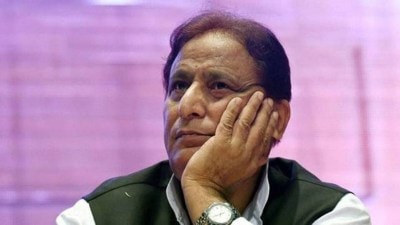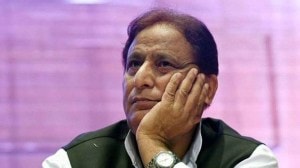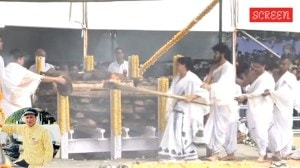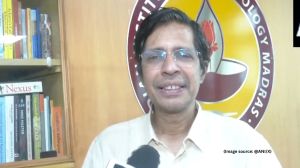Curtain comes down on 11th Lok Sabha
NEW DELHI, Dec 4: It was finally curtains on the 26-day drama when President KR Narayanan telephoned Lok Sabha Speaker PA Sangma at 2 pm to...

NEW DELHI, Dec 4: It was finally curtains on the 26-day drama when President KR Narayanan telephoned Lok Sabha Speaker PA Sangma at 2 pm today to inform him about his decision to end the life of the 11th Lok Sabha. In this, too, he followed tradition: It’s customary for the President to inform the Lok Sabha Speaker before signing the dissolution order.
The President, who has in the last few days taken to task leaders of the United Front (UF) and the Congress for landing the country in an unfortunate situation, has indicated to the Government that it must get on with the task of governance even in its caretaker capacity.
From all accounts, Narayanan has been particularly worried about the prospect of a “no-Government” for three months, since elections cannot be held before the end of February. This is hardly an encouraging scenario with the reversal of capital flows into the economy, the downward slide of the rupee, industrial recession and the other signals that a weak Government on its way out emits.
Since noon today, Sangma had been waiting for word from Rashtrapati Bhavan. The President had called Prime Minister IK Gujral and Finance Minister P Chidambaram to decide how to resolve the Government’s problem of getting additional money it needed with the Lok Sabha, which usually sanctions it, about to be dissolved.
This tangle delayed the dissolution decision by a day even as the writing on the wall became clear on Wednesday about the inability of any group to cobble together a majority. Rumours started to fly again yesterday on the Lok Sabha getting a new lease of life as there was a suggestion that it be reconvened to allow the financial business to be transacted. But the passage of a money bill would have meant the Government had a majority in the House.
Cabinet sources said the Government needs a sum of around Rs 5,000 crores, including Rs 4,000 crores passed for its promised payment to Government servants under the Fifth Pay Commission. The Election Commission has also demanded Rs 700 crores for the impending elections.
Having mulled the pros and cons of reconvening the House, Narayanan is learnt to have finally agreed to promulgate an ordinance to increase the amount available with the Contingency Fund from Rs 50 crores to Rs 5,000 crores. The Contingency Fund normally provides Rs 50 crores to the Government as `pocket money’ to spend in certain exigencies without reference to Parliament.
For President Narayanan, it was a Hobson’s choice. The reconvening of the House would have subjected him to the charge of encouraging defections. Agriculture Minister Chaturanan Mishra hinted at this possibility yesterday.
The Bharatiya Janata Party (BJP) has already stated that the tally of Congress members ready to swing to its side has reached 40. The earliest that the House could have met was on Monday since the MPs who had left for their constituencies would have had to be given time to return to the Capital. “An ordinance to increase the amount in the Contingency Fund may be unusual but not illegal and it was the only option available,” said a senior Cabinet Minister. To be on the safe side, Narayanan consulted all the major political groupings and the UF, Congress and the BJP were apparently in favour of it.
The Government had resorted to this method in 1979 when Charan Singh was Prime Minister to get an additional Rs 100 crore for elections. Again PV Narasimha Rao chose this route to provide an additional Rs 780 crores to MPs as part of the Rs-one-crore-to-an-MP scheme even though there was no dissolution imminent at the time.
However, there is a school of thought which is opposed to this course of action because it encourages an unhealthy trend of bypassing Parliament. In 1991, the then President R Venkatraman had opted to reconvene Parliament to pass the vote on account and other financial business without debate when Chandra Shekhar had resigned on March 6. Legal opinion was divided at the time, and Venkatraman wrote in his My Presidential Years: “I was determined not to issue an ordinance in respect of financial and budgetary matters.”
During the last week, Narayanan was also faced with the ticklish issue of his powers to dissolve the Lok Sabha when the Gujral Government resigned without making such a recommendation. The overwhelming legal opinion, including that of the Attorney General, was that the President has these powers.
Photos



- 01
- 02
- 03
- 04
- 05




























